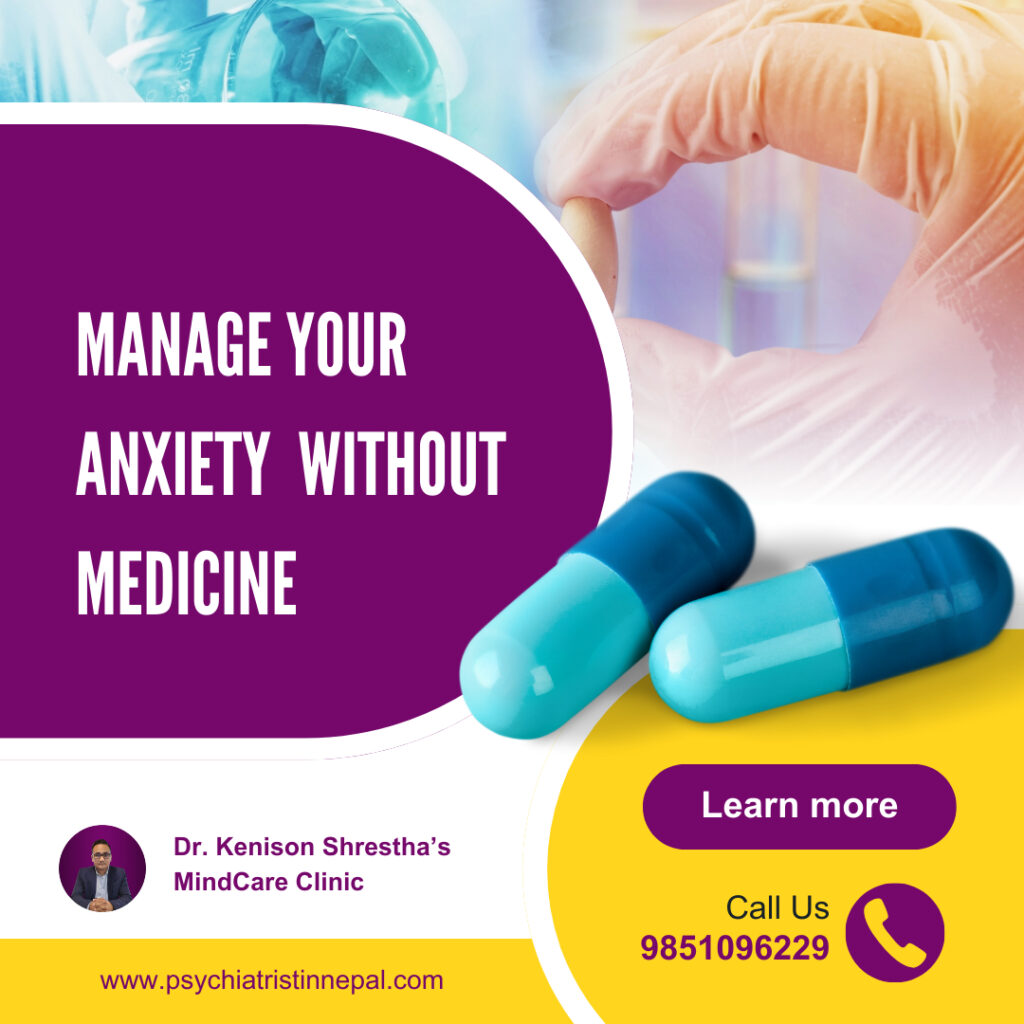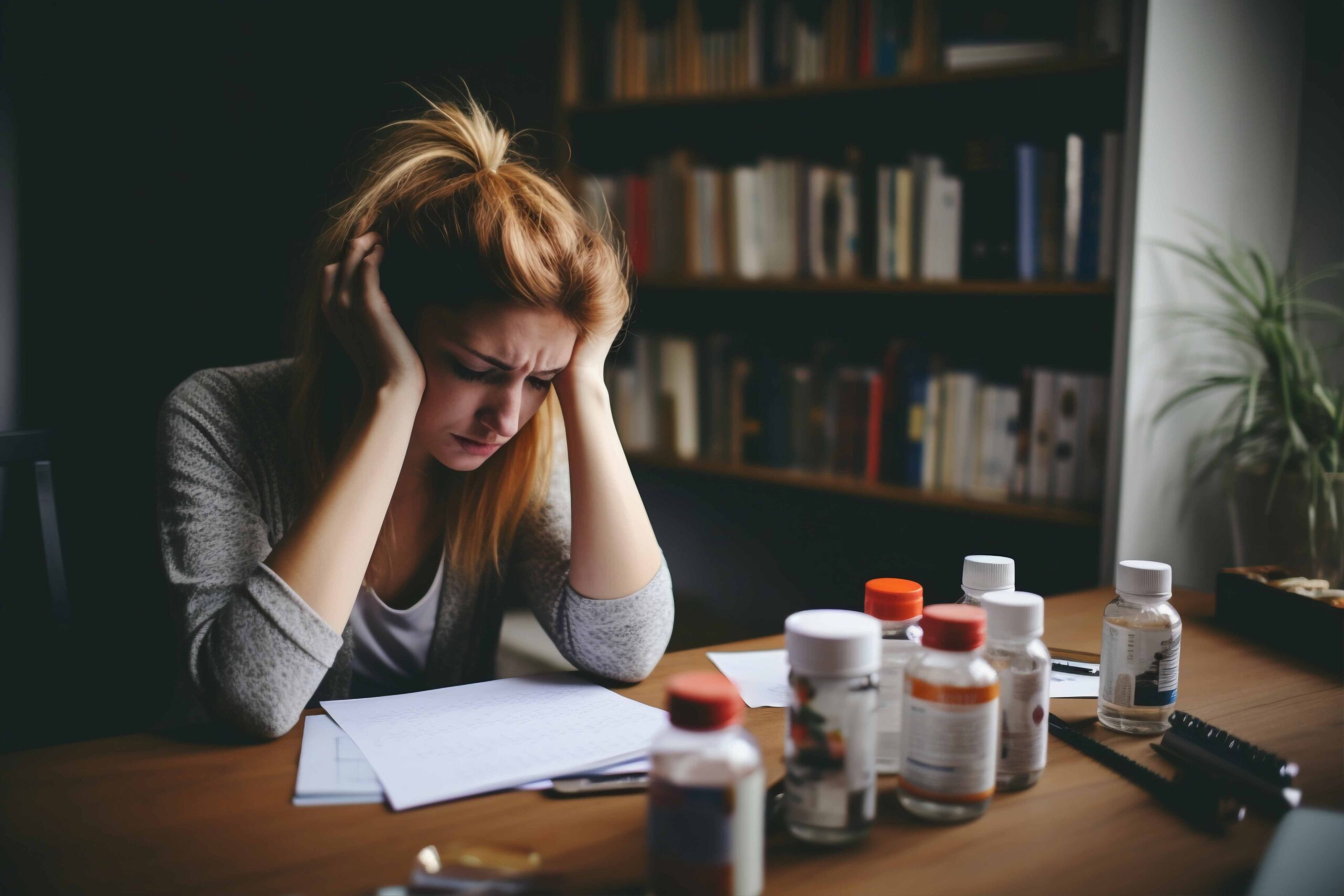15. 5 Ways to Manage Your Anxiety Without Medicine
Manage your Anxiety without Medicine
Worldwide, millions of people are affected by mental health conditions, especially Anxiety. We all must have experienced feelings of anxiety at some point in our lives. Usually, we call it “worry”. Anxiety is a normal condition too, but when it overwhelms and increases over days and becomes severe enough to hamper our daily functioning, it becomes a disorder. Sometimes being anxious motivates achievement too, and such milder forms of normal anxiety do not require any treatment. But those in severe form require proper treatment. While medication can be an effective treatment for anxiety, most people try to explore on non-pharmacological therapies.
In this blog, we try to explore ways to handle our anxiety without medication.
Manage your Anxiety without Medicine: Few methods for dealing with anxiety are:
- Focus on the things you can control and challenge negative thoughts:
In our lives, there are many things outside of our control. The things might be how long the situation lasts, how other people behave, and what will happen around us. We might feel drained, anxious, and overwhelmed if we try to focus on these things. Instead, we should try to shift our focus to the things that we can control. For example, we can’t control how severe the Corona outbreak will be in our area, but we can take steps to reduce the risk.
Anxiety usually comes from negative thought patterns. When we feel anxious, our minds tend to focus on worst case scenarios.
Cognitive behavioral therapy (CBT) is a type of psychotherapy that can help you identify and challenge these negative thought patterns, replacing them with more realistic and helpful ones.
- Practice Relaxation Techniques and Use Mindfulness techniques:
Relaxation techniques activate the body’s relaxation response, counteracting the flight-or-fight responses triggered by anxiety. Deep breathing exercises, Jacobson’s progressive muscle relaxation (JPMR), and mindfulness meditation are all effective ways to reduce anxiety symptoms.
- Get Regular Exercise:
Physical exercise is a powerful stress reliever. Regular physical exercise helps release endorphins, which have good mood-boosting effects, as well as improve sleep quality. Aim for at least 30 minutes of moderate-intensity exercise most days of the week.
- Diet and nutrition changes:
Make changes in your diet, such as reducing caffeine intake, especially late in the day or before bed. Limit or avoid processed sugar.
- Connect with others:
Social support is crucial. Spending time with loved ones, and joining a support group can help you with your anxiety.
- Other additional tips: (Manage your Anxiety without Medicine)
- Maintain a healthy sleep routine.
- Eat a balanced diet.
- Start journaling your thoughts.
Conclusion:
Yes, medication is indeed a valuable tool for managing anxiety. But it’s not the only option. One should follow these routines and actively participate in lifestyle change strategies to manage anxiety effectively and improve their mental well-being.
Note: If you are struggling with Anxiety, it is essential to seek for professional help. Your mental health professionals (Psychiatrist, Psychologist or Counselor) will help you identify your mental health condition and categorize the severity of the condition and provide you appropriate treatment plan for better quality of life. Not all of the condition is treated with the medicine, but some of the measures other than medicine will definitely help you fight with your anxiety.
I hope this blog would help you understand about the anxiety disorder, it’s treatment measures and also help to reduce the stigma regarding use of medicine in Anxiety disorder.
Remember, managing anxiety takes time and effort. Be patient with yourself, and celebrate your progress along the way.

For appointment with Psychiatrist:
Dr. Kenison Shrestha’s MindCare Clinic
9851096229
